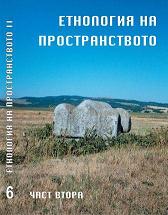За някои мотиви в българската юнашка епика
About some motifs in the Bulgarian heroic epic
Author(s): Albena MalchevaSubject(s): Anthropology
Published by: Асоциация за антропология, етнология и фолклористика ОНГЬЛ
Summary/Abstract: The scientific interest to the subject “Krali Marko frees three chains of slaves” which is representative for historical and heroic theme is strengthen and there are researches devoted to it which search varied suggestions and links with another subjects and motifs as well as with Bulgarian rites. The present work has for an object to add some strokes to the question about the reason for the existence of the subject in our epic tradition. The search follows on the line analysis of concrete variants of the most popular subject version – Krali Marko gone to church and then frees three chains of slaves and in comparisons with other subjects which possess similar motifs. The song motif “free of slaves” is considered as a notional part of the texts of the most popular subject variant because the motifs with which it is “rounded” are relatively consonant and they are not multitudinous. By examining of the text continuums there are founded constructional elements, according to them the action of “free of slaves” in the song composition is in the position of culmination but no in the position – an object of the travelling of the hero. The object of the travelling is receiving of a sacrament at Easter after the confession of the hero. In that way the cultural context of the song being enlarges by meaning and should be related to epoch in which the notion about the HERO has the following characteristics: he is human being who is dependent to the sin and there is a supreme sanction about its actions and proceedings. That’s why the text meaning have the following accents: 1) eulogy of the taken up of the hero cross – to serve at the nation and God with the gift of warrior; 2) eulogy of the penitence as a model of heroic behaviour; 3) praise at Easter and receiving of sacrament of the hero.
Journal: Годишник на Асоциация за антропология, етнология и фолклористика »Онгъл«
- Issue Year: 2007
- Issue No: 6
- Page Range: 36-45
- Page Count: 10
- Language: Bulgarian
- Content File-PDF

